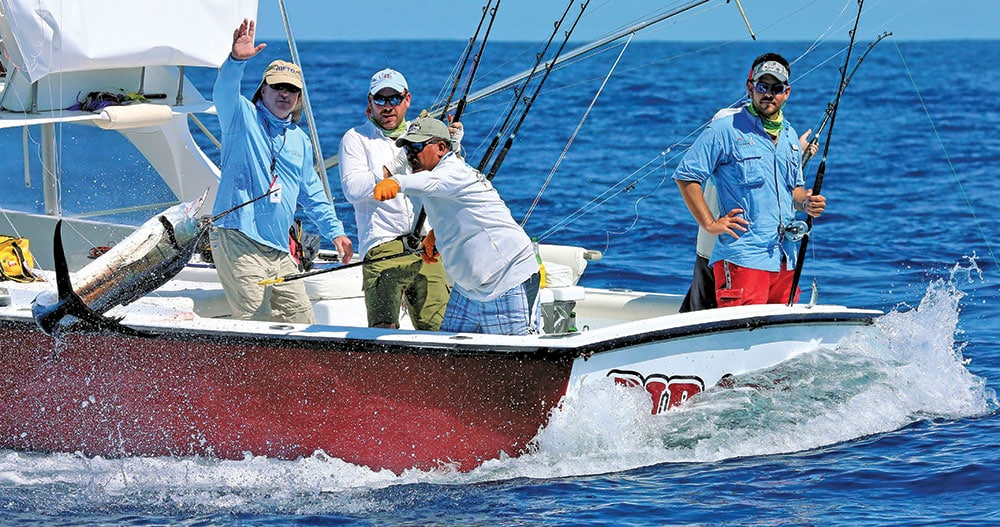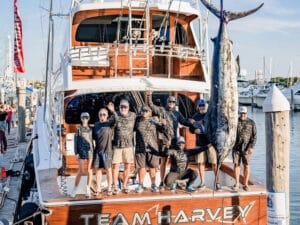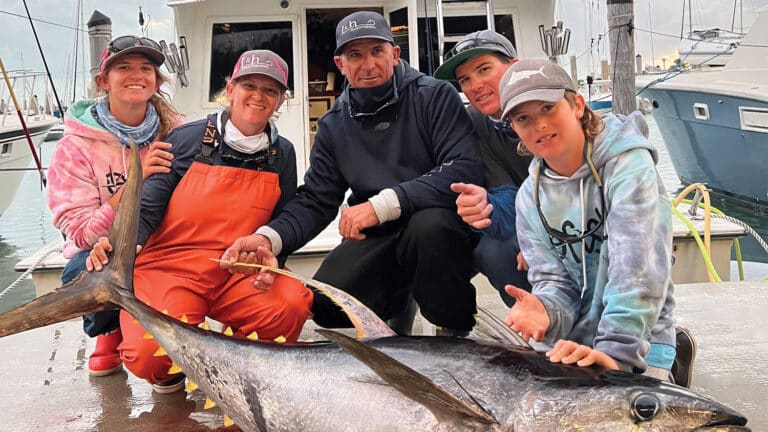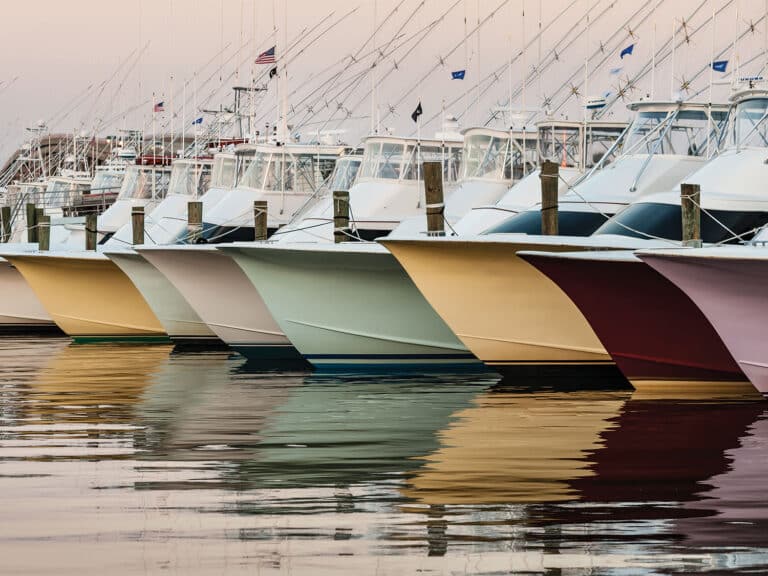
IGFTO
Angler Bill Gooch promoted the idea of a tournament observer program in 1999 by creating a training program covering the essentials every observer should be required to know while observing in a big-game tournament. Given the official name of Certified Observer Program and becoming known as “COP” as it evolved and grew, the program was used initially to train observers for Gooch’s Red, White and Blue Tournament in Virginia Beach, Virginia.
Taught by Gooch and Virginia Beach captains Bob Stephens, Don White and Bill Hellman, the COP training program was soon embraced by several other tournament directors. Jimmy Loveland of the Atlantic Blue Marlin Tournament in the U.S. Virgin Islands and Rick Alvarez of the La Guaira Shootout Tournament in Venezuela strongly supported the program and adopted the COP format in each of their own tournaments. Joan Vernon, tournament director of the Presidential Challenge series, said, “The onset of the use of observers was a giant step forward in conservation and allowed many former ‘kill’ tournaments to convert to an all-release format.” The International Game Fish Association (IGFA) and former IGFA President Mike Leech ultimately took over management of COP.
Fast-forwarding to 2009, the IGFA decided to modify their role in COP to only provide educational training for tournament observers. At this point, the International Game Fish Tournament Observers (IGFTO) was created by experienced fishermen and businessmen Bob Malerba, John Treat and Terry O’Neil, who felt passionately about picking up where COP left off by continuing to provide highly trained and insured observers to safely witness catches and releases during billfish tournaments. Evolving into an official 501(c)3 charitable organization, the IGFTO is dedicated to the preservation and protection of billfish. Now with 2014 in the rearview mirror, the IGFTO celebrates a successful fifth year with many milestones accomplished.
During this short time frame, IGFTO observers witnessed 17,015 billfish releases in 11 countries throughout the Caribbean, the U.S. Virgin Islands, Central America and the United States. The IGFTO continues to grow with more than 100 trained and experienced members, and the IGFTO added seven new tournaments, including stops in Puerto Rico, Nicaragua, the Dominican Republic, Florida and El Salvador during 2014. As of this writing, the IGFTO has 18 billfish tournaments slated for 2015. Each year, additional tournament directors seek experienced, well-qualified observers to not only ensure boats and crews follow both IGFA and tournament rules, but more importantly score successfully released billfish.
While digital cameras are often used both to verify a successful release and to identify fish species during tournaments, both tournament directors and participants often prefer using observers rather than relying on cameras to do these important tasks. There are plenty of stories over the years from teams who wished they had an observer on board after having a fish disqualified because a video did not adequately show the fish species or release. “Release tournaments using video or photo confirmation run the risk of a number of rule infractions that can occur when the video camera is not rolling or when the snapshot is taken,” Alvarez says.
The IGFTO will continue to work with conservation organizations like The Billfish Foundation to help gather data as well as with the IGFA to educate and train new observers due to the increasing demand. To find out more, visit igfto.org.







